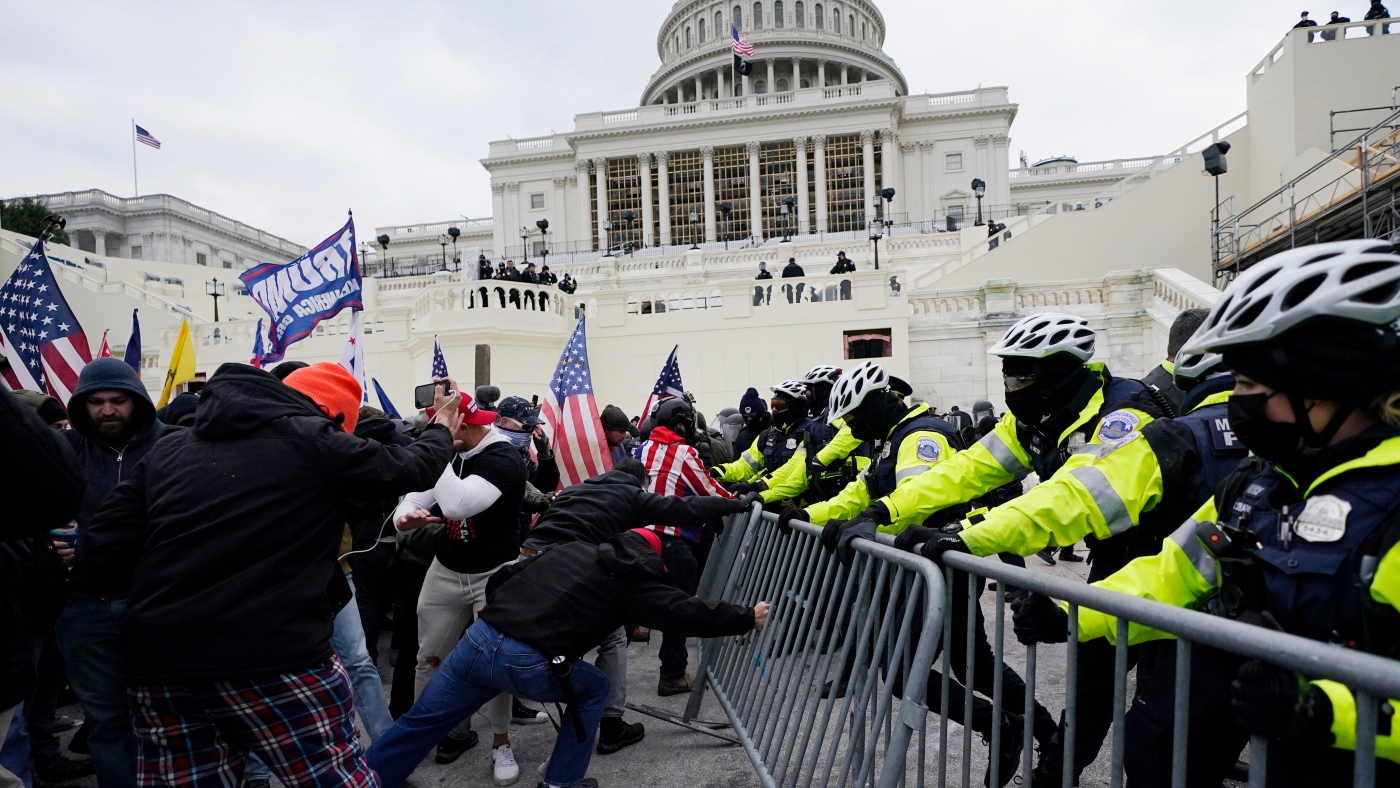UPDATE: President Donald Trump has just issued two pardons related to the ongoing fallout from the January 6, 2021 Capitol riot, igniting fresh debates about his use of executive power. The pardons, confirmed by sources close to the White House, include one for Suzanne Ellen Kaye, who was convicted of threatening FBI agents during their investigation into her alleged involvement in the Capitol insurrection.
In a striking move, Trump also pardoned Daniel Edwin Wilson, a defendant who faced serious charges stemming from his role in the January 6 events, including illegal possession of firearms. Wilson, who had been serving a five-year sentence, was released on October 20, 2023. This action highlights Trump’s willingness to leverage his presidential authority to assist those implicated in the expansive investigations initiated by the Biden administration.
Kaye was originally sentenced to 18 months in prison after posting a threatening video to social media, asserting her Second Amendment rights and warning that she would shoot FBI agents if they approached her home. The court deemed her comments a reflection of “violent political rhetoric that causes serious harm” to society. While Kaye claimed she did not own any firearms and did not intend to threaten the FBI, the case has raised eyebrows regarding the limits of political speech.
Meanwhile, Wilson’s pardon has garnered attention due to the extensive legal debates surrounding his case. Authorities previously discovered six firearms and approximately 4,800 rounds of ammunition at his residence, raising questions about the legality of his possession given his prior felony convictions. Wilson was implicated in planning the Capitol riot, having communicated with members of extremist groups like the Oath Keepers and the Three Percenters, with prosecutors stating he had intentions of inciting a broader civil conflict.
A White House official, speaking anonymously, stated, “Because the search of Mr. Wilson’s home was due to the events of January 6, and they should have never been there in the first place, President Trump is pardoning Mr. Wilson for the firearm issues.” This reasoning marks a significant shift in the ongoing narrative surrounding the January 6 pardons, as the Justice Department had initially argued that these did not extend to other criminal activities uncovered during investigations.
The pardons come as part of Trump’s broader strategy to support his allies who faced repercussions from the events of January 6. With over 1,500 defendants charged in connection to the riot, these actions may symbolize a pushback against the current administration’s approach to those involved.
As news of these pardons spreads, both supporters and critics will likely engage in heated discussions about the implications of Trump’s executive actions. Legal experts are already weighing in, noting the potential ramifications for future presidential pardons and their scope.
Next, observers will be watching closely for Trump’s continued influence over the Republican Party and how these pardons may shape future political dynamics as the 2024 elections approach. With the nation still grappling with the aftermath of January 6, the discussions surrounding these pardons are expected to intensify.
Stay tuned for further updates as this story develops.






































































